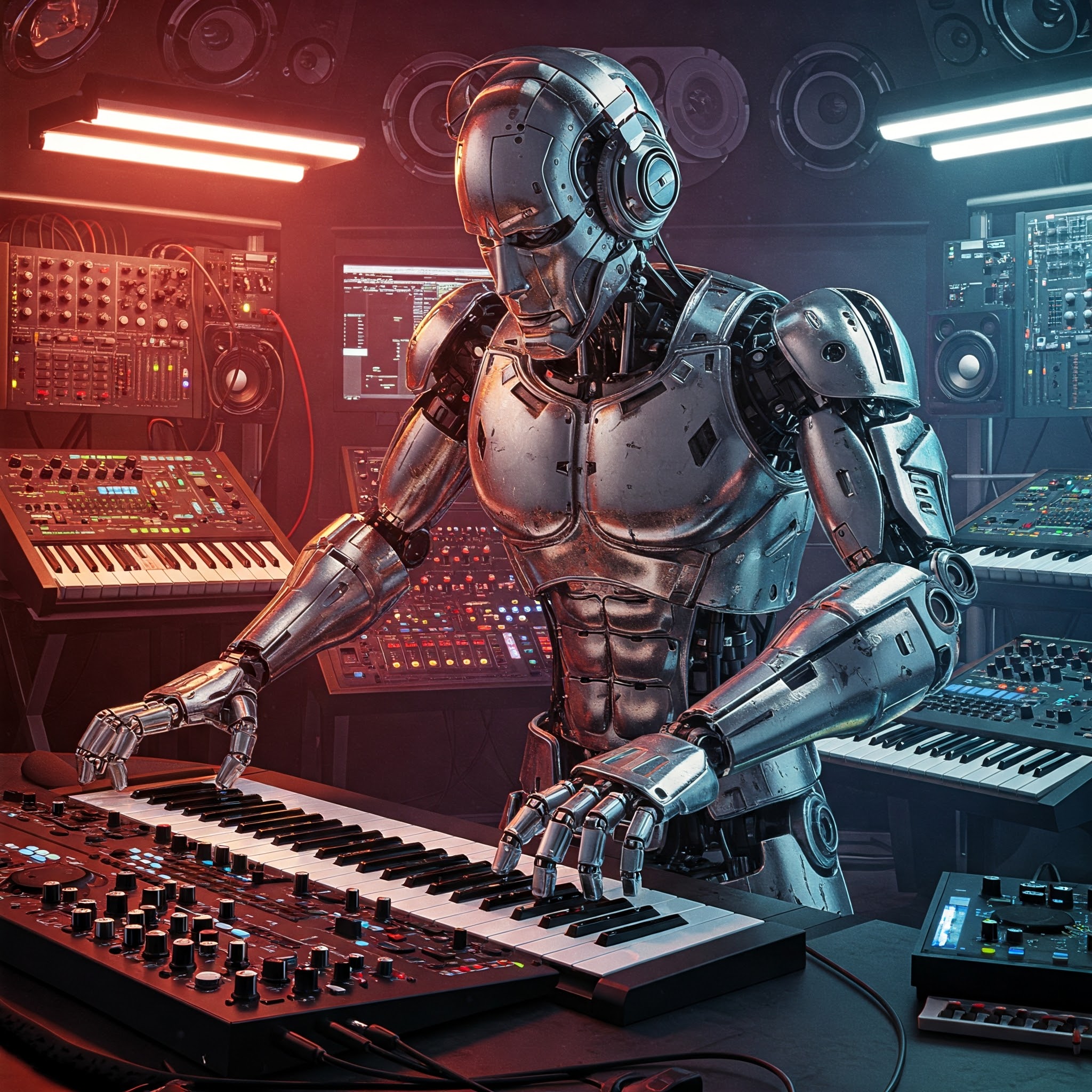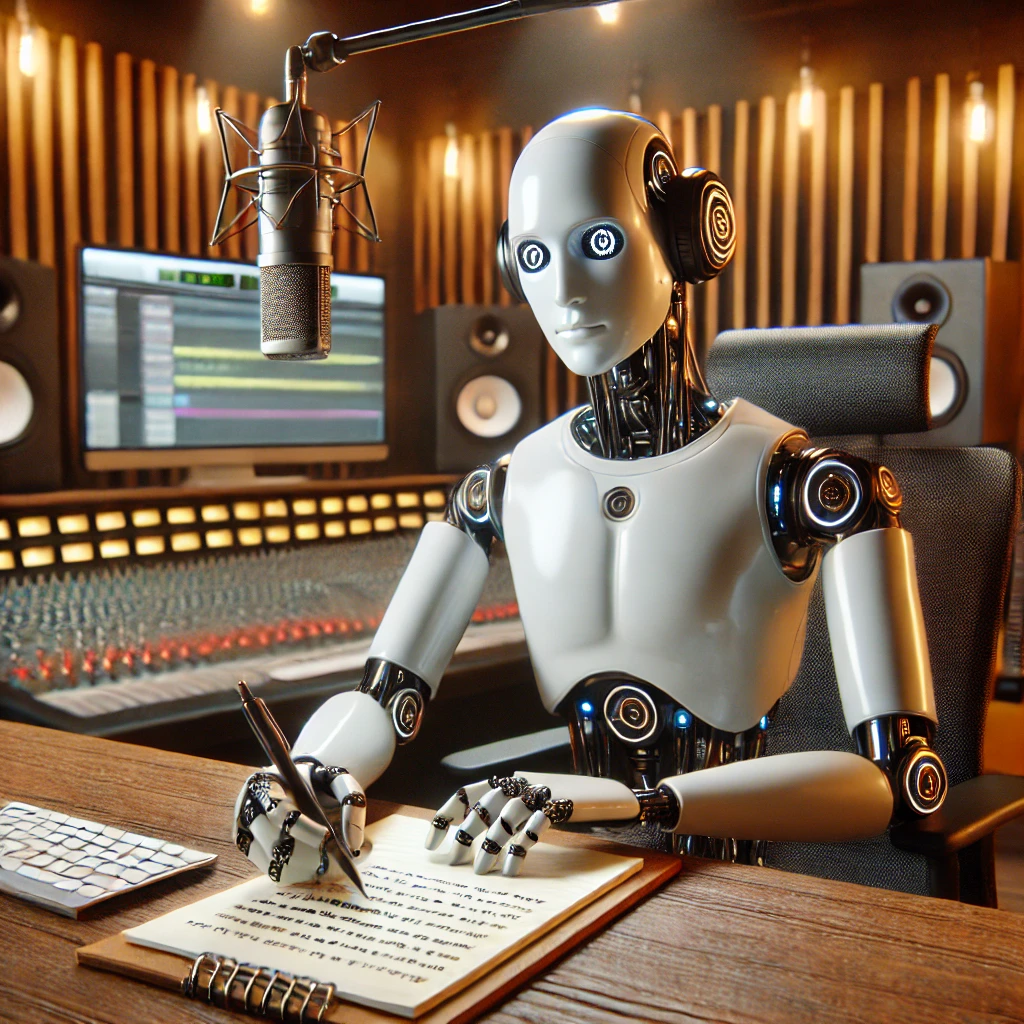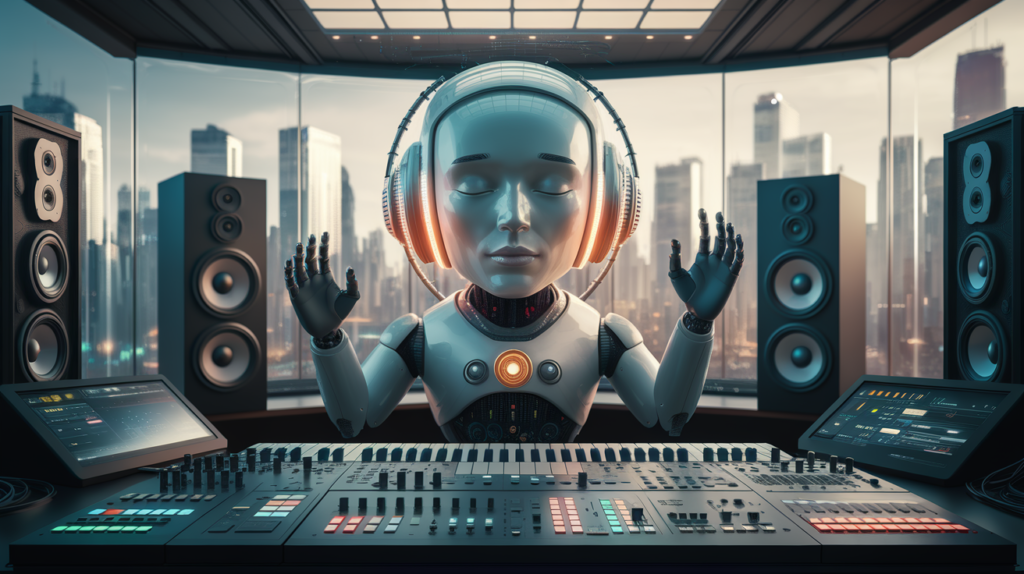Has AI arrived and knocked the doors of music industry also? The fusion of creativity and technology has given birth to remarkable innovations, with artificial intelligence leading the charge in reshaping the music industry. From generating unique compositions to optimizing marketing strategies, artificial intelligence has become an indispensable tool for musicians, producers, and businesses alike.
In this comprehensive blog, we’ll explore the groundbreaking role of artificial intelligence in music, its impact on creative industries, and how businesses like adwebcraft empower creators through digital solutions.
A New Symphony: Artificial Intelligence in Music
Artificial intelligence, once confined to academic research, has emerged as a creative collaborator in the music industry. Its ability to process massive amounts of data and make intelligent decisions has led to innovations in every aspect of music creation, production, and distribution. Who doesn’t like to get an advise from a smarter being and in this case, a smarter machine.
Remembering the days , when Mohammed Rafi and Lata Mangeshkar use to sing songs full of melody that everyone was their fan, the time when composing a song or mastering an album, required significant time and resources. Now, the time has changed and with the help of technology things have turned out to be much more efficient and easy, after the knock-knock of artificial intelligence, it streamlines these processes by enhancing them in every aspect possible, allowing artists to focus on the emotional and creative aspects of their craft. Now, imagine what if Rafi sahab and Lata didi had such tools, would they be this loved and famous as they are today or their art would get compressed?
How Artificial Intelligence is Revolutionizing Music Creation
1) AI-Powered Music Composition
Artificial intelligence has introduced a new era of music composition. Tools like AIVA (Artificial Intelligence Virtual Artist) and Amper Music analyze thousands of existing tracks to generate original melodies. These platforms allow users to select genres, instruments, and moods, tailoring compositions to their unique needs. Imagine, if these tools and options were available with Kishore Da? What do you think, would his voice and magic enhance or would remain underrated .?
For instance, filmmakers can create custom soundtracks for their projects without hiring a composer. Similarly, brands can use AI-generated music for advertisements or promotional videos. The ease and accessibility of these tools are transforming how music is made. Today, just with enough knowledge these tools would create good music tracks, is it concerning ?
2) Artificial Intelligence in Lyric Writing
AI isn’t limited to melodies—it’s also venturing into the realm of lyrics. Advanced AI models like ChatGPT and LyricStudio can generate poetic, meaningful lyrics in various styles and genres. These tools offer inspiration to songwriters and help them overcome creative blocks.These AI tools don’t just generate random lines—they produce meaningful, poetic content that aligns with the artist’s vision. Whether you’re creating a heartfelt ballad or a catchy pop anthem, AI assists in brainstorming and refining ideas, making the lyric-writing process faster and more efficient.
3) Personalized Music Creation
AI tools can be programmed to craft highly personalized compositions. For example, users can input specific parameters like tempo, key, or mood, ensuring the final product aligns with their unique needs. For example, a content creator needing an uplifting background track for a video can instruct AI software to compose a melody with an upbeat tempo and a happy mood. Similarly, a filmmaker might request a slow, melancholic tune for a dramatic scene, ensuring the music perfectly complements the visuals.
4) Adaptive Soundtracks for Video Games and Films
In dynamic industries like gaming and filmmaking, AI is making soundtracks adaptive. AI algorithms adjust music in real time based on the emotions or actions within a scene, creating immersive experiences for users.
In gaming, AI algorithms analyze in-game events, such as battles or exploration, and adjust the music’s tempo, intensity, or mood to match the player’s experience. For instance, a serene melody might transition into a tense orchestral score as enemies appear, enhancing immersion.
Similarly, in films, AI can modify a soundtrack to fit the emotional tone of a scene, making it more impactful. Directors can experiment with different moods during post-production, allowing for greater creative flexibility.
Artificial Intelligence in Music Production

1) AI-Assisted Mixing and Mastering
Artificial intelligence has revolutionized the once time-consuming process of mixing and mastering music. Tools like LANDR, iZotope Ozone, and CloudBounce leverage AI algorithms to analyze audio tracks and apply precise adjustments for professional-quality sound.
These platforms handle tasks like balancing frequencies, enhancing dynamics, and optimizing audio levels automatically, significantly reducing the need for manual intervention. Independent artists, small studios, and even established producers benefit from these solutions, as they save both time and money while delivering polished, radio-ready tracks.
For emerging artists or small studios, this means access to high-quality production without the need for expensive equipment or expertise.
2) Virtual Instruments and Plugins
AI has also revolutionized virtual instruments. AI-powered plugins like Orb Composer and Scaler assist musicians by suggesting chord progressions, melodies, and harmonies. These tools provide a creative boost, helping artists experiment with new ideas.
3) Sound Design with AI
Artificial intelligence is transforming sound design by offering innovative tools to create unique audio textures and effects. Platforms like Endlesss and iZotope allow artists and producers to experiment with AI-generated sounds, blending them with human input to craft entirely new sonic landscapes.
These tools analyze audio patterns and suggest creative modifications, enabling users to manipulate sound with precision. Whether designing futuristic sound effects for films, atmospheric tones for video games, or experimental music tracks, AI simplifies the process while expanding creative possibilities.
Artificial Intelligence and Music Marketing
1) Personalized Music Recommendations
AI powers the recommendation engines of streaming platforms like Spotify, Apple Music, and YouTube Music. By analyzing listening habits, mood preferences, and social trends, these algorithms suggest music tailored to individual users.
This benefits not only listeners but also artists, who can reach highly specific audiences. For emerging musicians, AI-driven recommendations open doors to new fans and opportunities.
2) Data-Driven Marketing Strategies
For musicians and labels, promoting music has never been more efficient. AI tools like BuzzSumo and Hootsuite Insights analyze audience demographics, track engagement metrics, and optimize ad placements. These data-driven strategies ensure that marketing budgets are spent effectively.

Artificial Intelligence in Live Music Experiences
1) Virtual Concerts and Events
AI is redefining live music through virtual concerts and events. Platforms like Wave and Sansar enable artists to perform in immersive digital spaces, reaching global audiences without logistical constraints.
These virtual experiences, often enhanced with augmented reality (AR) and virtual reality (VR), are particularly popular among tech-savvy and younger audiences.
2) Real-Time Audience Interaction
Artificial intelligence is revolutionizing how artists engage with audiences during live performances. By analyzing real-time data, such as social media mentions, applause levels, or even facial expressions captured during events, AI provides instant feedback on audience reactions.
This enables performers to adapt their sets on the fly—changing song selections, tempos, or energy levels to align with the crowd’s mood. Tools powered by AI also allow for dynamic visual effects and interactive elements, enhancing the overall experience.
Ethical and Creative Challenges in AI Music
- Authenticity and Originality:- A common concern with artificial intelligence in music is the potential loss of authenticity. While AI can replicate styles and generate melodies, it lacks the emotional depth and unique perspective of human artists. Balancing AI assistance with genuine creativity is crucial.
- Copyright Issues:- As AI draws from existing works to create new music, copyright disputes can arise. Ensuring that AI-generated compositions are original and legally sound is a significant challenge for the industry.
- Job Displacement:- While artificial intelligence enhances efficiency, it also raises concerns about job displacement in areas like sound engineering and production. The music industry must find ways to integrate AI without compromising human talent.
Why Artificial Intelligence Matters for Creative Industries
Artificial intelligence is revolutionizing creative industries by enhancing efficiency, expanding creative possibilities, and democratizing access to professional tools. In the music industry, AI assists with composing melodies, mastering tracks, and crafting immersive experiences.
Similarly, in fields like graphic design and filmmaking, AI-driven platforms enable creators to experiment with bold ideas and produce high-quality work faster than ever before.
Beyond production, AI enhances audience engagement by analyzing consumer preferences and tailoring content to resonate deeply with specific audiences. It bridges the gap between creativity and technology, helping artists and businesses create impactful, personalized experiences. Far from replacing human creativity, artificial intelligence amplifies it, offering a powerful ally for professionals looking to innovate and thrive in an increasingly competitive landscape.
At adwebcraft, we specialize in helping creative professionals adapt to these changes. From digital marketing to web development and graphic design, we offer tailored solutions that leverage the power of AI.
Conclusion
Creative minds are authentic? Yes, they definitely are. They don’t need any help ? Well, IT DEPENDS. But, using Artificial intelligence is not a shame in fact it’s a powerful ally for the music industry, enhancing creativity, efficiency, and audience engagement. As we said before ,if these options were available before, many legendary singers and makers would happily use it as a tool and helping hand. From composing melodies to marketing songs, AI is transforming how music is created, distributed, and experienced, so, nothing is wrong or right, everything depends on the way and manner a person uses it .
At adwebcraft, we’re committed to helping creative professionals navigate this exciting era of innovation. Whether you’re an independent artist or a music business, our digital solutions can help you thrive in the age of artificial intelligence. So, what are you waiting for ? Waiting for Ed Sheeran to come and explain you this ? that ain’t gonna happy you know, so be on yourself and starting creating.


